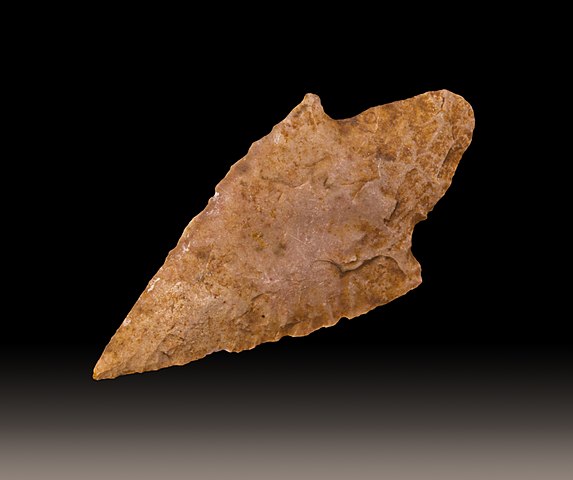
When does history start? This is a difficult question, but we have prehistory, protohistory, and then history. Protohistory is the point where prehistory becomes history and it is probably in about 3400 BC.
This is an impossible question because there is no concrete date. History is said to begin with the development of writing systems because you need to be able to write to record history. There were oral histories, of course, but there are no records of them and no way of knowing what existed.
Prehistory is literally the time before history. It covers the enormous span from when humans first evolved to when they started writing. Homo sapiens only appeared about 350,000 years ago, but there were different species of humans around for at least 6 million years before that. Fossils found of human-like creatures from before 6 million years ago are more ape than human in both stance and brain capacity. This side of 6 million years and the fossils start to become more human in form. There were probably as many as 20 different species of humans that interbred or fought against each other, before there was an ancestor that became us. So, prehistory could go back anywhere as far as 6 million years, depending on what you class as “human”. If we just take Homo Sapiens to be human, then prehistory stretches back 350,000 years.
Prehistory is long and covers a huge amount of evolution and technological improvement. It covers the development of stone tools, language, art, and clothing. It covers the migration out of Africa, and the entire stone age. It covers the hunter-gatherer people and the beginnings of agriculture. It covers the early civilizations and the developments of cities. It covers the extinction of the Neanderthals. And then prehistory becomes history, in roughly 3400 BC. What happened?
The easy answer is that writing was invented. Writing was invented in Ancient Egypt, Mesopotamia, and Sumer at pretty much the same time, independently. It makes sense that if writing was going to be invented anywhere, it would be in these major centers of civilization. There are many symbols that come from several thousand years before the systems that are acknowledged as writing, but they are too few and far between to be an organized system. Writing appears to take off because more people were living in the same place and it became necessary to find a way to keep track of things. This is pretty much the same reason that money appeared. If you live in a small village, you can remember who you gave a chicken to, but if there are thousands of people living together, it becomes more difficult. This period where writing is being invented is called protohistory because people are not quite recording history, but they have started.
The first histories are chronologies of kings, or pharaohs in the case of Egypt. The Sumerians used their new writing system to write lists of people, and to make inventories. They have lots of legal documents and an awful lot of tax records. The Egyptians did something similar and they wrote chronologies of their pharaohs, often marking them on buildings. The Sumerian writings might have survived in larger quantities because they were written on clay tablets and the Egyptians used papyrus. However, these lists of kings and their finances might be interesting, but they are not a history. And this is possibly part of this question. History obviously always exists. There is history whether it is written down or not. History started when there were people to make history. Written history started when people could write, but, this is not history in the way we would term it. These people made lists of things, but they didn’t analyze or explain them. They didn’t try to work out why things happened. And this, perhaps, is the mark of a history. If we take this to be true, then history started in about 450 BC.
A Greek writer called Herodotus has been called the Father of History. He wrote about events that had happened and he put a narrative to them, making them more than just a list. By doing so, he has become known as the father of history and the first historian. Many people didn’t believe him, both in his own time and later, but archaeology has shown that many of the things he said were actually true. He wasn’t the first historian because there are several people who wrote narratives before the time of Herodotus, but none of them wrote as much or to the same level as Herodotus. He was a very influential historian and many people copied his style. He made history popular and it could be said that the tradition of writing histories began with him. And this is what I learned today.
Image By Didier Descouens – Own work, CC BY-SA 4.0, https://commons.wikimedia.org/w/index.php?curid=11090839
Sources
https://www.ushistory.org/civ/1c.asp
https://www.worldhistory.org/herodotus
https://www.getty.edu/news/where-did-writing-come-from
https://www.history.com/news/prehistoric-ages-timeline
https://en.wikipedia.org/wiki/Early_modern_human
https://www.nature.com/articles/s41586-021-04275-8
https://humanorigins.si.edu/education/introduction-human-evolution
https://en.wikipedia.org/wiki/Timeline_of_prehistory
